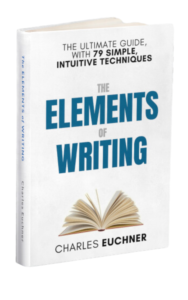Back when newsprint prevailed and crusty old editors ruled the daily operations of journalism, a copy editor named Theodore Bernstein produced an in-house newsletter to celebrate the best and critique the worst of The New York Times. It was called “Winners & Sinners.”
Bernstein has passed from the scene, but his approach still offers value for all scribblers who want to get better. And so, in his honor, I present an ongoing collection of Winners and Sinners in both print and pixels.
If you have nominations, send them to me at charleseuchner AT gmail DOT com.
Winners
In memoriam: If you ever get a great editor, be grateful. In a beautiful tribute, Ruth Reichl remembers her longtime editor, Susan Kamil. Reichl remembers being upset when Kamil delivered an unexpected critique: “I’m sorry, it’s good, but if you’re not willing to go deeper, there’s just no point.” Kamil, the executive vice president and publisher of Random House, died on September 8. She left behind a legacy of caring and deep-cutting insight on what makes a manuscript work. Much of that insight came from the subconscious. Reichl writes: “Susan would lean across the desk, fix those large expressive eyes on me, point at a paragraph. ‘Are you sure he’d do that?’ ‘What are you really trying to say here?’ ‘I have a feeling you don’t like this woman. Can you put it into words?’ Answering her questions, I’d find myself saying things I hadn’t even known I thought.”
Sinners
Me first: In his 2,030-word review of Samantha Powers’s memoir, Thomas Friedman begins with 595 words about himself. This opening tells us nothing about Powers, her career as an academic and human rights activist, and her life as an advisor to Barack Obama and then his ambassador to the United Nations. The first line–“Whenever The New York Times invites me to do a book review…”–is a tipoff to his self-importance. Once he starts gets to Powers, Friedman isn’t bad. Still, he acts as if the point of the review is himself, not Powers.
Maybe we need a new approach to teaching writing. For decades, high school and college teachers have treated students as future academics rather than as future citizens and workers. Rather than focusing on thesis statements, academic terminology, literature reviews, and other elements of academic work, we need to make writing ]simple, clear sentences and paragraphs the top priority.
Of course, that requires finding teachers who write well themselves.
What do you think?


